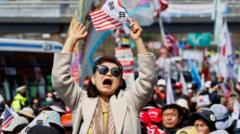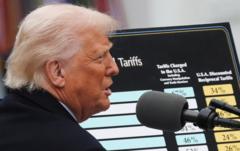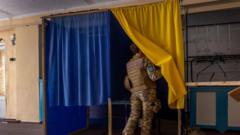As South Korea processes the political fallout from Yoon Suk Yeol's impeachment, many are left questioning his future and the implications of his ongoing legal battles.
Yoon Suk Yeol's Political Future Uncertain Amid Legal Turmoil

Yoon Suk Yeol's Political Future Uncertain Amid Legal Turmoil
Former President of South Korea faces criminal charges over martial law declaration
Yoon Suk Yeol, the former president of South Korea, finds himself at a pivotal moment following his impeachment upheld by the Constitutional Court. Despite being removed from office, he is now confronted with serious criminal charges relating to a controversial martial law he declared on December 3. Yoon, who previously served as a prosecutor, is accused of instigating insurrection by prohibiting all political activities and allegedly ordering military forces to forcibly expel lawmakers from the National Assembly.
In his defense, Yoon has vehemently denied orchestrating any insurrection, maintaining that his actions were necessary to safeguard the nation from threats he labeled as “anti-state forces.” The ongoing trial regarding these charges began in February and poses a significant risk to Yoon's freedom; if convicted, he could face a lengthy prison sentence.
Interestingly, historical context plays a role in the public’s perception of Yoon's fate. Several past presidents in South Korea, such as Park Geun-hye, who was convicted for bribery, have ultimately received early releases from imprisonment. Park was pardoned in 2021 after serving less than five years of a twenty-year sentence.
While Yoon's recent impeachment does not bear direct consequences on the criminal case proceeding, the political environment surrounding his situation could impact public sentiment and possibly influence judicial outcomes. The dichotomy of support and opposition surrounding Yoon reflects a country grappling with its political identity amidst ongoing challenges.
In his defense, Yoon has vehemently denied orchestrating any insurrection, maintaining that his actions were necessary to safeguard the nation from threats he labeled as “anti-state forces.” The ongoing trial regarding these charges began in February and poses a significant risk to Yoon's freedom; if convicted, he could face a lengthy prison sentence.
Interestingly, historical context plays a role in the public’s perception of Yoon's fate. Several past presidents in South Korea, such as Park Geun-hye, who was convicted for bribery, have ultimately received early releases from imprisonment. Park was pardoned in 2021 after serving less than five years of a twenty-year sentence.
While Yoon's recent impeachment does not bear direct consequences on the criminal case proceeding, the political environment surrounding his situation could impact public sentiment and possibly influence judicial outcomes. The dichotomy of support and opposition surrounding Yoon reflects a country grappling with its political identity amidst ongoing challenges.



















